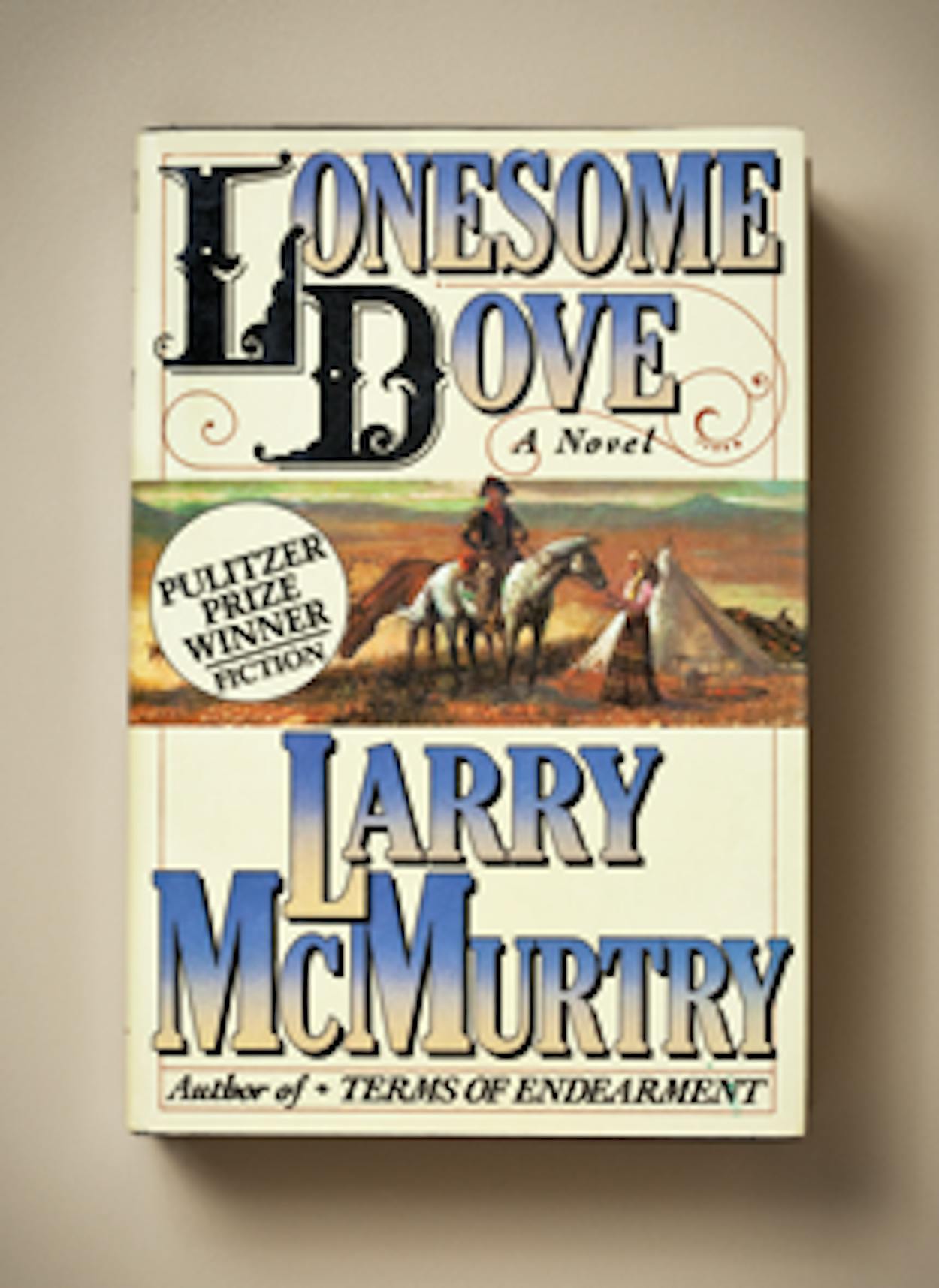A place is lucky if it gives birth to good writers and luckier still if it is able to hold on to them. Most places aren’t, maybe because good writing about home is usually not celebration; it involves ambivalence, love mixed with hate, pride mixed with dismay, hope mixed with anger, all of which can be counted on to drive the writer away at some point—though if the place where he’s from is really lucky, he’ll come back before too long.
In an alarmingly productive career that has taken place mostly in Texas, Larry McMurtry, the pride of Archer County, has published no fewer than 45 books, and it seems likely that I have overlooked a couple or that he will find a way to bring another one out before the magazine gets back from the printer. The most famous of these, of course, is Lonesome Dove, which has now reached its twenty-fifth anniversary, an occasion we have seen fit to commemorate this month with senior editor John Spong’s meticulous oral history of the book and the beloved miniseries it inspired (“True West”).
This long shelf of McMurtry books is a treasure we are fortunate to have. Their sum constitutes a miraculous meditation on place, spanning almost half a century. How many states have had the benefit of such keen observation? Mississippi had Faulkner. California had Steinbeck. McMurtry’s subject is Texas, and since Horseman, Pass By, he has devoted himself to it almost entirely. “Man’s fate attends us all, but we grapple with our own in particular places, and where people talk and behave in particular ways.” He tossed off this smart line in a 2007 Newsweek review of the film adaptation of Cormac McCarthy’s No Country for Old Men, but it might as well stand as a description of his writing life, especially that word “grapple.” From the beginning, McMurtry has fought with his homeland and its literature. When Lonesome Dove was published, on June 13, 1985, he had already gone on record as saying that the myth of the West was bankrupt. “This myth had served its time, and lost its potency; insofar as it still functioned, it was an inhibiting, rather than a creative, factor in our literary life,” he wrote in 1981. It is often said that he set out to prove this in Lonesome Dove, that the book was his attempt to demythologize the West.
As our oral history makes clear, the attempt largely failed. Rather than strip the western of its fabled power and bring the genre to an end, Lonesome Dove reinvigorated it, a turn of events that seems to have both pleased and displeased the author. In a 2006 review of a revisionist history of the Texas Rangers by one Gary Clayton Anderson, McMurtry observed, “When Professor Anderson speaks of the need to demythologize Texas I can only wish him luck. He’ll be lucky if he demythologizes it for a few historians and their graduate students. At this late date demythologizing Texas is beyond anyone’s power.”
This statement contains a great deal of respect, as well as lament, for the ability of Texas to withstand its demythologizers. After all, who wants to live in a place that folds up its tent at the first sign of a revisionist historian? I suspect that had it been possible for Lonesome Dove to successfully demythologize the West, McMurtry would have gone off to live somewhere else a long time ago. A writer finds out the truth about his home—and himself—through grappling, and a home that is unable to put up much of a fight doesn’t leave him with much truth either. It’s the old love-hate business. I’m reminded of the words of another Texan in this issue, the Houston rapper Paul Wall, whose rhymes about grills, rims, and codeine addiction are about as far removed from McMurtry’s novels as possible but whose comment to our interviewer struck a note in common: “I take a lot of pride in being from Texas. I love all parts of Texas—even the things I hate about Texas I love.”
Next month
The promise and peril of charter schools in Texas, the timeless world of John Graves, understanding the drug violence along the border, Kinky Friedman’s campaign advice, and five great vacations you still have time to take this summer.







